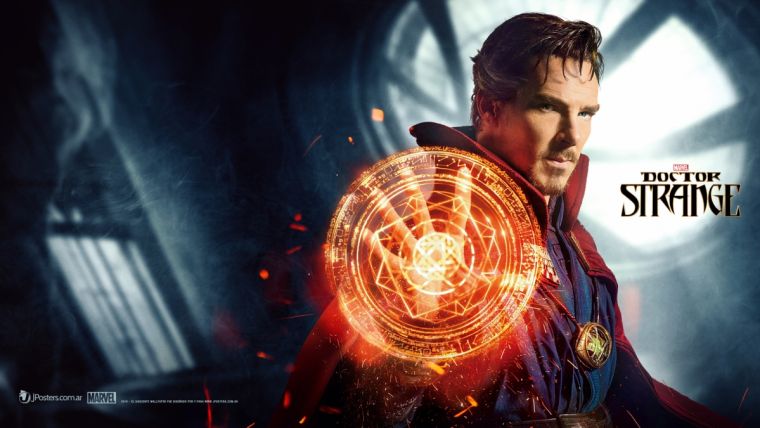Doctor Strange: The Most Theological Marvel Movie So Far

Atheists are really going to hate the latest entry in the Marvel Cinematic Universe (MCU). Doctor Strange, the Benedict Cumberbatch-fronted action epic about a superhero who can subvert time and space takes a dim view of the faithless, instead presenting a new dimension to the comic book world which allows for souls, spirits and even eternal life.
Cumberbatch plays the titular Doctor, a New York MD whose rational view of reality is blown apart when he encounters Tilda Swinton's mysterious order of Tibetan monks. Searching for healing in the aftermath of a car crash that has cost him his career, Doctor Strange finds himself confronted with the truth of a world beyond our own, learning fabulous super-powers in the process. And while God is never mentioned directly, Strange is forced to accept that there's a cosmic battle going on between good and evil, and he's given the free will to choose which side he'll be fighting on.
Naturally, he chooses the light, and so alongside Chiwetel Ejiofor and his occasionally roaming accent, Strange fulfils the heroic journey of a well-above-average origin story – and perhaps unexpectedly one of the very best MCU movies so far. Cumberbatch does a superb job of illuminating one of Marvel's lesser-known characters, even when he's dogged by a script with more than its fair share of cliché, and he's ably supported by a stellar cast that includes Rachel McAdams in one of her perennial time-traveller love interest roles. What really elevates the film though, in the context of an increasingly stretched genre, is its blistering originality. The movie's look and feel is continuously inventive (as long as you can forget Inception for a moment), and its two key action set pieces are both breathtakingly executed.
Christian director Scott Derrickson achieves all this AND packs the film full of theological nods, from lines borrowed straight from Scripture to one extremely pertinent use of an Eden-esque apple. He's never more On Message in this regard than in the film's frequent references to Christ-like submission. In the worldview of Tilda Swinton's monastic order, the first comes last, surrender is the hero's path to victory, and the greatest lesson is to learn that "it's not about you". Albeit in fragments, Derrickson presents his viewer with much of the message of Jesus, who came as a servant, put aside his own interests, and defeated death itself and even the linear rules of time on his path to victory. In the interest of not violating my own spoiler warning, I can't say much more than that Strange hits every one of those notes; when you think about them in hindsight, the parallels are striking.
That said, it's a stretch to suggest that Doctor Strange tries to offer a Christian worldview. Yet it does superbly disarm the idea that science has all the answers, and it does manage to make a mumbo-jumbo spirituality sound adventurous and exciting in a way that most preachers fail to do with the Kingdom of God. It's a great conversation starter about the bigger picture behind everything, but it's also a bit of a challenge to the church's communicators to make the real life cosmic battle between good and evil sound half as compelling as a Marvel superhero film can.
Martin Saunders is a Contributing Editor for Christian Today and the Deputy CEO of Youthscape. Follow him on Twitter @martinsaunders.











